Overview
We aim to establish a Center for Substance Use Disorders and Pain Management that supports and advances excellence in education, research, clinical care, community engagement, public policy, and advocacy. The Center will support and advance the practice of integrated and collaborative care across five areas of substance use disorder prevention and treatment and pain management towards shared goals and outcomes:
- Basic science research
- Clinical bench to bedside research
- Workforce development for interprofessional team-based care
- Program evaluation, outcomes assessment, and advocacy for policy and legislative change based on evidence-based practice and practice-informed guidelines
- University culture change through an Addiction Medicine Fellowship in research, clinical service, and education
Recently, we partnered with the National Academy of Medicine and more than 100 other organizations in a commitment to reversing national trends in opioid misuse and overdose.
Meet the Research Team
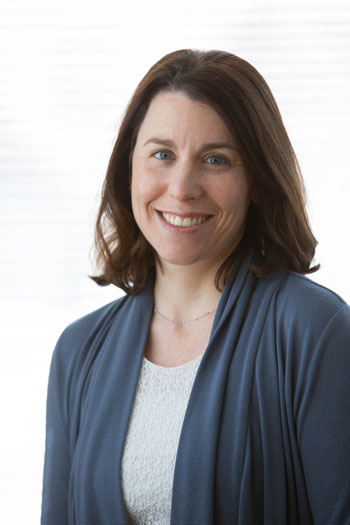
Jennifer R. Bello Kottenstette, M.D., M.S. Assistant Professor Family and Community Medicine
Practice Areas:
- Family Medicine; Women’s Health; Correctional Healthcare
Research Interests:
- Addressing the preconception health needs of incarcerated women with substance use disorders
- Implementation of jail-based Medication Assisted Treatment (MAT) for opioid use disorders
- Pregnancy intentions screening in primary care
Partnerships and Collaborations:
- Associate Director of the Health Criminology Research Consortium, Saint Louis University
- Co-investigator on HEAL initiative to reduce opioid overdose
- Implementation team for jail-based MAT at the St. Louis County Jail funded by SAMSHA
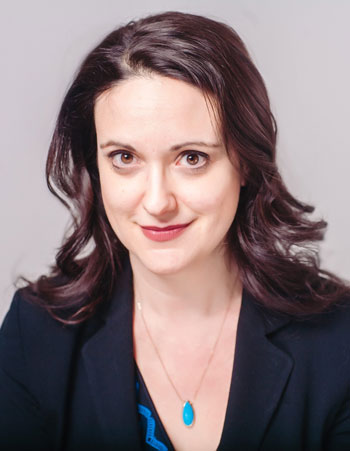
Liz Chiarello, Ph.D. Assistant Professor, Sociology
Research Areas:
- Medical Sociology; Socio-Legal Studies; Organizations; Professions; Social Movements
Research Interests:
- Examines how the fields of healthcare and criminal justice work collaboratively and combatively to address the opioid crisis
- Addresses how shared surveillance technology in the form of prescription drug monitoring programs affects frontline decision-making in healthcare and law enforcement
- Analyzes how strategies for addressing the opioid crisis affect access to care for pain patients and patients with substance use disorders
Partnerships and Collaborations:
- Academic: University of Missouri and NCADA--MO HOPE Prescription Drug Advisory Council; Washington University and University of Missouri HEAL Grant (in progress); jointly appointed in Law and Bioethics
- Community: St. Louis County CRUSH
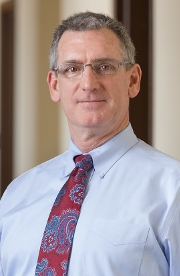
David Pole, Ph.D., M.P.H. Assistant Professor, Family & Community Medicine; Director of Center for Interprofessional Education and Research
Practice Areas:
- Education
Research Interests:
- The use of problem-based learning (PBL) framework in IPE courses for Health Care Professional Students.
- Community based participatory design to prepare learners for effective collaborations to improve population health.
- Effective teamwork, professional development, collaborative practice and the impact on patient care and health outcomes.
Partnerships and Collaborations:
- The IPE programs with nine health professions programs at the schools of medicine, nursing, social work, Doisy College of Health Sciences, and the St. Louis College of Pharmacy.
- The IP Clinical Practicum and Community Practicum courses collaborate with 15 clinical sites and 25 community-agency partners in St Louis.
- The Center provides professional development on collaborative change leadership development with SLUCare Clinic Managers across the entire ambulatory practice, and nurse leaders/directors at the SSM-SLU Hospital.
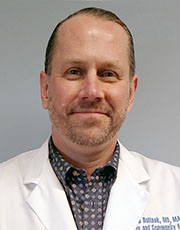
Fred Rottnek, M.D., M.A.H.C.M.
Professor and Director of Community Medicine; Physician Assistant Education
Practice Areas:
- Addiction Medicine; Family Medicine; Interprofessional Collaborative Practice; Correctional Healthcare
Research Interests:
- Substance Use Disorders, Pain, Health Professional Education
Partnerships and Collaborations:
- Academic: Washington University and University of Missouri—St. Louis (Missouri State Opioid Response Team); SLU Center for Health Law Studies (Opioids, policy, access to care)
- Healthcare: Assisted Recovery Centers of America (Clinical practice); SSM—System level (Opioid Stewardship Project); Catholic Health Association (Editorial Committee)
- Community: Safety Net Regional Health: Saint Louis Regional Health Commission; Saint Louis Integrated Health Network; Saint Louis Behavioral Health Network; and Alive and Well Communities (Trauma)
Publications:
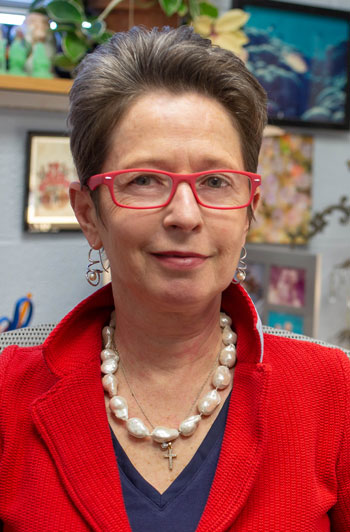
Daniela Salvemini, Ph.D. Professor, Pharmacology & Physiology Director, SLU Center for Neuroscience Fellow, Saint Louis Academy of Science Co-Founder and Chief Scientific Advisor, BioIntervene Inc.
Research Interests:
- Chronic Pain, Substance Use Disorders, Chemotherapy-induced cognitive dysfunction (chemobrain)
- Understand molecular and cellular pathways that drive the development of neuropathic pain states with a particular focus on traumatic and chemotherapy induced neuropathic pain.
- Examine molecular and cellular pathways that cause opioid induced pain and tolerance that are critical in the loss of opioid efficacy over time and directly contribute to reward, addiction and abuse
- Examine the contribution of neuroinflammation in neuropathic pain, opioid induced adverse events and chemotherapy-induced cognitive deficits
- Understand neuro-immune signaling at the intersection of substance use disorders and chronic pain
Partnerships and Collaborations:
- SLU (pain and cognitive function); University of Arizona (pain and opioids); MD Anderson (chemobrain); University of California San Diego (pain); University of Maryland (pain); Calgary University (pain and opioids); NIH/NIDDK (chemistry, novel analgesics); Virginia Commonwealth University (pain and opioids); Southern Illinois University Edwardsville (chemistry, novel analgesics); University of Florence (pain); University of Naples (pain and opioids); University of Messina (pain and opioids).
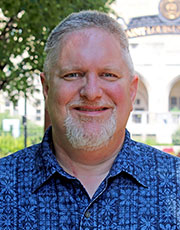
Jeffrey F. Scherrer, Ph.D. - Director of Research Professor and Director of Family and Community Medicine Division of Research Secondary appointment: SLU Center for Health Outcomes Research (SLUCOR)
Academic Service:
- Editor in Chief – Family Practice
- Serves on SLU Applied Health Research Council * Standing member ICTS JIT grant reviews
Research Interests:
- Prescription opioid pharmaco-epidemiology
- Mental health consequences of chronic prescription opioid use
- Role of mental illness in treatment of prescription opioid dependence
- Interventions to increase patient treatment seeking for opioid dependence
- Health consequences of mental illness
- Large medical record databases
- Mind-body relationships and care delivery models for comorbid physical and mental illness
Partnerships and Collaborations:
- On-going collaborations with members of the national Health Care Systems Research Network
- SLU Big Idea – creating a SLU-SSM patient data base
- Co-investigator on HEAL initiative to reduce opioid overdose
- Veterans Health Affairs
- Research Director – ARCHNet, a St. Louis family medicine practice based research network
Saint Louis University School of Medicine Curricular Thread on Pain, Substance Use, and Addiction
With support of the Senior Associate Dean of Undergraduate Education, this curricular thread was introduced in the 2016-2017 academic yearandis being fully implemented in 2017-2018. Each session is embedded in an established course or clerkship.
Future plans include integrating Course on Addiction and Recovery Education(CARE) into MS-3 clerkships or a horizontal longitudinal course focusing on communication.
| Year | Course | Session Objectives | Instructional Method | Competencies Addressed |
|---|---|---|---|---|
| MS-1 | Clinical Interviewing |
|
|
LCME Key Words and Hot Topics
USMILE1
|
| MS-2 | Behavioral Health and Medicine |
|
|
LCME Key Words and Hot Topics
USMLE Step 1
|
| MS-3 | Family Medicine Clerkship |
|
|
LCME Key Words and Hot Topics
USMILE Step 2
|
| MS-4 | Capstone |
|
|
LCME Key Words and Hot Topics
|
Events
Please join Family and Community Medicine for this second annual SLU community event on Wednesday, December 12, 2018 at the School of Medicine.
In this opioid crisis, health care professionals face increasing challenges to care for their patients and themselves. This day of training will provide practical steps forward. Providers’ Clinical Support System (PCSS) Training for physicians, physician residents, physician assistants, and nurse practitioners (Limit 50 participants).
PCSS offers a free, blended 8-hour training for physicians to obtain their buprenorphine waiver. This morning training fulfills the 4.25 hours of face-to-face training. (Participants must complete the 3.75-hour online training within 30 days after this. See below for details and resources).
Course Instructor: Fred Rottnek, M.D., M.A.H.C.M.
Register for the morning program
Afternoon program: Noon-4:00 p.m. (Starting in Pitlyk LRC A)
Audience: Faculty, fellows, residents, and students in Medicine, Nursing, and the Physician Assistant Program (Limit 100 participants).
Noon-1:00 p.m. - The Conley Lectureship: How Do We Care for our Health Care Providers in an Era of Burnout and Addiction, Joseph Skrajewski, M.A., M.F.T.I., Executive Director, Medical and Professional Education, Hazelden Betty Ford Foundation (Lunch will be provided; please bring your own beverage):
1:00-2:00 p.m. - Voices of the Community: Panel Discussion with Community Members Receiving Medication for Opioid Use Disorder, Panel Facilitator: Fred Rottnek, M.D., M.A.H.C.M.
2:15-3:15 p.m. - Breakout Sessions (Choose one).
Health Professionals at Risk: How Do We Care for Our Providers? (LRC 110-111) Panelists:
- Emily Cybulla, M.D., Ph.D. Student, Saint Louis University School of Medicine
- Joseph Skrajewski, M.A., M.F.T.I., Executive Director, Medical and Professional Education
- Percy Menzies, M. Pharm., Assisted Recovery Centers of America (ARCA)
Facilitated by Kelly Everard, Ph.D., Director of Medical Student Education in Family and Community Medicine.
Research Collaboration at SLU for Prevention, Risky Substance Use, and Addiction (LRC 112-113).
Facilitated by Liz Chiarello, Ph.D., Associate Professor, Sociology and Anthropology.
3:15 p.m. Closing Networking Reception (LRC Lobby).
Register for the afternoon program
We will provide a selection of box lunches from SLU Catering. We will have some vegetarian lunches available. If you have special dietary needs, please feel free to bring your own lunch.
For additional questions, contact Fred Rottnek, M.D., M.A.H.C.M. at fred.rottnek@health.slu.edu.
Details for Half and Half Trainee Instructions:
After participants complete the live “Half” of the training, PCSS will provide participants with a link to complete the other “Half” as an online self-study. Once participants finish both halves PCSS will provide you with your certificate of completion and further instructions for registering with the DEA.
The Log of Participants will be returned to AAAP within 48 hours of the activity along with a spreadsheet that lists the first name, last name and @health.slu.edu email address of participants. Once the log has been received, AAAP/PCSS staff will verify their full attendance. An email will then be sent to the participants that will provide them with the link to the online self-study. Upon completion of the self-study and 24 question exam, PCSS will give them the link to the evaluation which will generate their Certificate of Completion and a link to the NOI form.
Please note that NPs/PAs can take the 8 hour waiver training and it will count towards their waiver application. The additional 16 hours of training is available on:
Also note, that while residents can take the waiver training, they will not be able to apply until they have a personal DEA number and an unrestricted medical license. This training allows them to be waiver-ready.